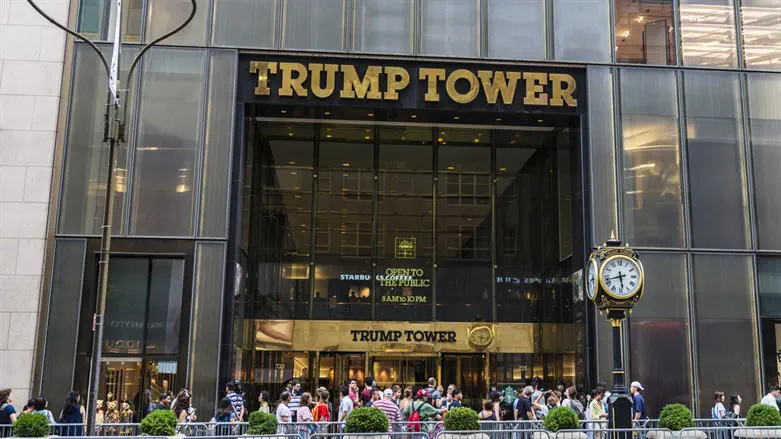
A Manhattan jury on Tuesday found two Trump Organization companies guilty on multiple charges of criminal tax fraud and falsifying business records connected to a 15-year scheme to defraud tax authorities by failing to report and pay taxes on compensation for top executives, CNN reported.
The Trump Corp. and Trump Payroll Corp. were found guilty on all charges they faced.
Jurors deliberated for just over a day before returning the guilty verdicts on a total of 17 counts, including scheme to defraud, conspiracy, criminal tax fraud and falsifying business records, according to NBC News.
The company faces roughly $1.6 million in fines at sentencing.
Former President Donald Trump and his family were not charged in this case, but the former President was mentioned repeatedly during the trial by prosecutors about his connection to the benefits doled out to certain executives, including company-funded apartments, car leases and personal expenses.
Trump is also facing a $250 million civil lawsuit from the New York attorney general alleging he and his adult children were involved in a decade long fraud. The attorney general is seeking to permanently bar them from serving as an officer or director of a company in New York state, among other penalties.
Prosecutor Joshua Steinglass told the jury in closing arguments that Trump “explicitly sanctioned” tax fraud and urged them to reject the defense’s argument that former Trump Organization Chief Financial Officer Allen Weisselberg was a rogue employee motivated by his own personal greed.
The jury heard that Trump agreed on a whim to pay the private school tuition for his Weisselberg’s grandchildren and signed a lease for a Manhattan apartment to shorten the executive’s commute. Trump personally signed his employees’ bonus checks at Christmas time and he initialed a memo reducing the salary of another top executives, which prosecutors said suggested he knew all along about the fraudulent scheme.
Prosecutors alleged for years top executives reduced their reported salaries by the amount of company-issued fringe benefits to avoid paying the required taxes.
Weisselberg, who is on paid leave from the company, spent three days on the witness stand. He pleaded guilty to 15 felonies for failing to pay taxes on $1.76 million in income.
As part of his plea deal, he will be sentenced to five months in jail if the judge finds that he testified truthfully, according to CNN.
In his testimony, Weisselberg admitted he should have paid taxes on compensation, totaling roughly $200,000 in one year, which included a luxury Manhattan apartment overlooking the Hudson River, two Mercedes Benz car leases, parking, utilities, furniture and private school tuition for his grandchildren. He also testified that he paid himself and other executives’ bonuses as though they were independent consultants – enabling the Trump companies to evade paying taxes on them.
Weisselberg testified that he pulled off the scheme with the help of his underling, Trump Organization controller Jeffrey McConney. McConney, who received immunity for testifying before the grand jury, admitted to some of the illegal conduct in his testimony.
Weisselberg revealed conversations he had with Trump, Eric Trump and Donald Trump Jr., but told the jury when questioned by the Trump attorneys that he did not scheme or conspire with anybody in the Trump family.
The Trump attorneys argued, repeatedly, to the jury that “Weisselberg did it for Weisselberg” to emphasize that he was motivated solely by his personal greed.
On cross examination, Weisselberg agreed that the decision to not pay taxes was his and made solely to benefit himself.
The lawyers for the Trump entities called just one fact witness, the real estate companies’ long-time accountant Donald Bender from Mazars USA, which dropped Trump as a client earlier this year.
Trump attorneys said Bender was either aware of the off-the-books compensation or should have caught the tax fraud and they accused him of lying on the stand.
When questioned by prosecutors Bender testified that he trusted and relied on Weisselberg, who testified that he hid the illegal scheme.
